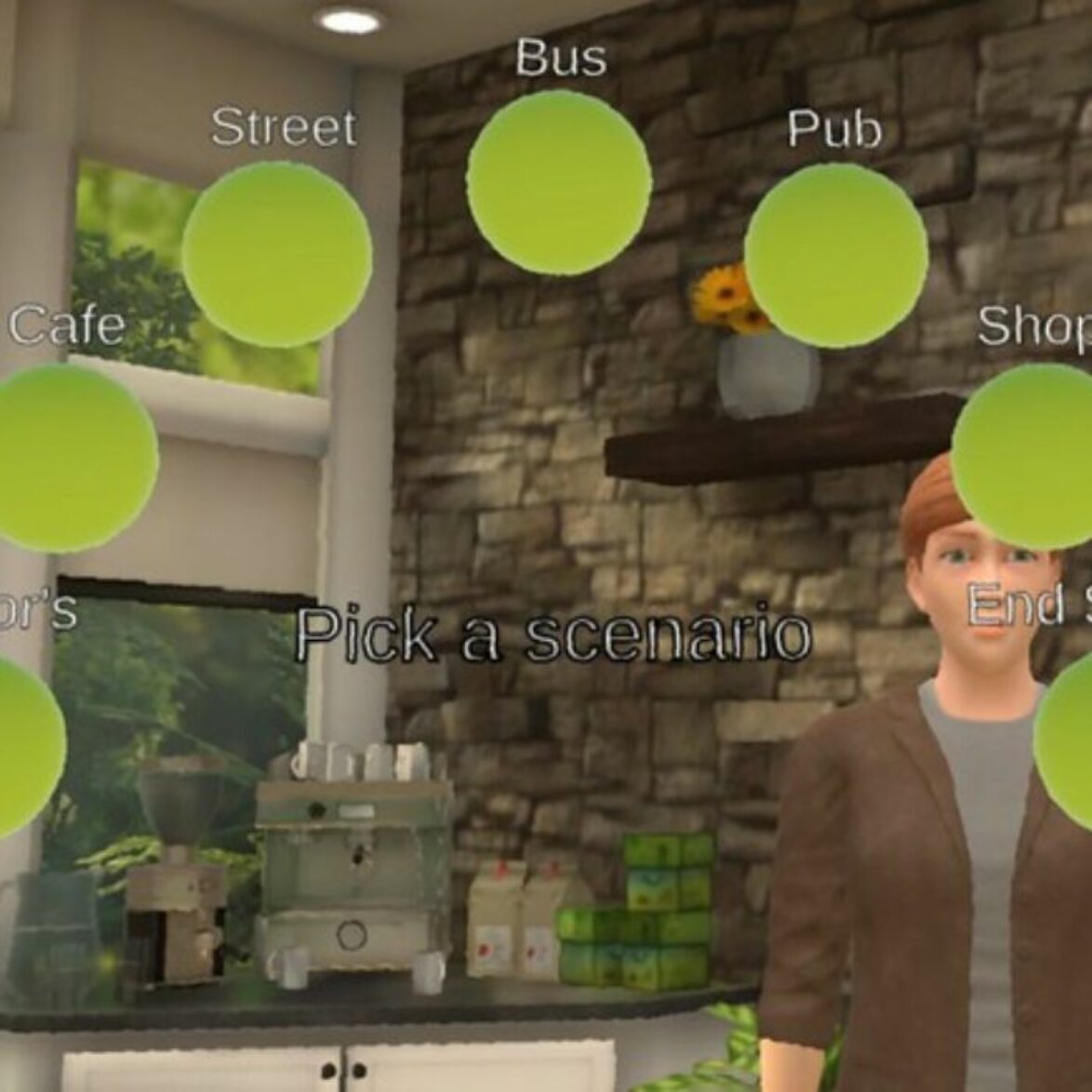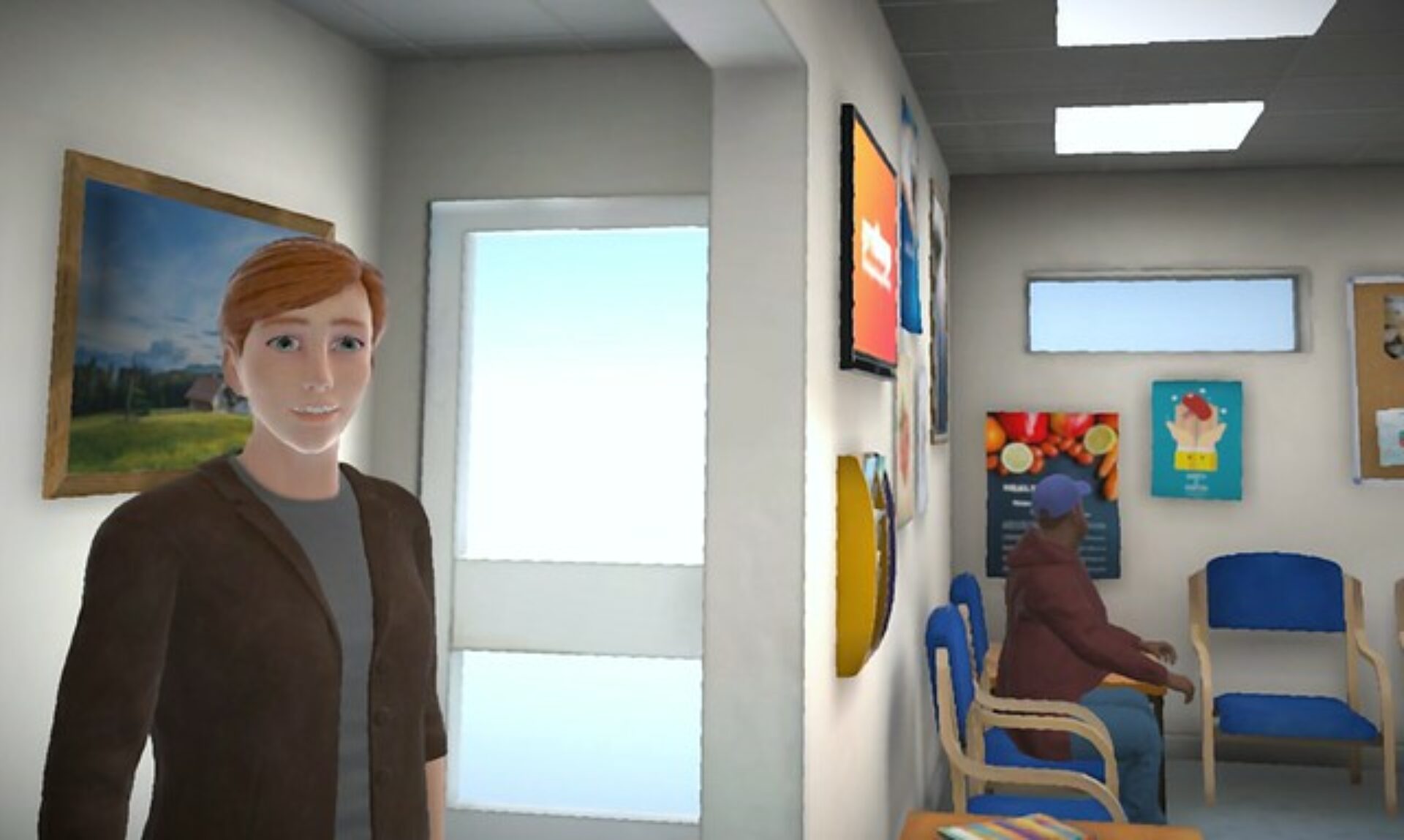In the largest ever trial of virtual reality for mental health, a VR therapy has been shown to help people with psychosis who find being in social situations or public places difficult.
People who received six sessions of the gameChange therapy had greater reductions in their agoraphobia and distress levels than people who continued with their usual treatment.
Over 500 hours of lived experience expertise went into the development of the therapy, facilitated by the McPin Foundation and the Helen Hamlyn Schools of Design. gameChange was developed by the University of Oxford with support from a range of partners.
A safe place to practise
People with psychosis often have anxieties about being in public or in social situations. This can make everyday tasks like food shopping distressing, lead to people withdrawing socially and avoiding certain situations such as public transport, and perhaps becoming housebound.
In gameChange, people can practice being in anxiety-provoking situations in the safety of virtual reality. There is support from an automated therapist, the person in the picture above, and from the person facilitating the therapy. People could choose whether to have the therapy at home or at an NHS site.

The trial found that people who were the most socially avoidant, for example, struggling to leave their house, benefited the most from the therapy and that the improvements were still there 6 months later. People were able to do things that had previously been unthinkable.
In the trial the facilitator was either a peer worker, a psychological assistant or a CBT-therapist. This demonstrates that the therapy can be delivered by a range of mental healthcare professionals, meaning that more people should be able to access the therapy when it becomes available. Currently access to therapies is often hampered by a shortage of clinicians to deliver them.
User-centred design
At the beginning of the therapy development process, McPin’s responsibility was to find out what everyday situations are difficult for people with psychosis. We recruited a Lived Experience Advisory Panel (LEAP) of 11 people to find out. They described specific situations that had been problematic for them, such as ordering a coffee and being in a cafe, or buying groceries at a local store. We recruited many more people who came to workshops facilitated by the Helen Hamlyn Design School, who designed the VR environments based on the suggestions. The lived experience advisors extensively tested each prototype scenario.
The next phase of McPin’s involvement took place alongside the trial to find out how participants experienced the therapy, and to learn about their lives before and afterwards.
We took a peer researcher approach, which means that people with similar mental health experiences to the participants shaped the design of the study, interviewed participants and analysed the data. The LEAP helped us prepare for the interviews and interpret the results.
The results from this study should be available later in the year. For now, the positive results from the trial bring virtual reality therapy a step closer to be offered to more people.
For more information about gameChange, see the project page, and project website.
